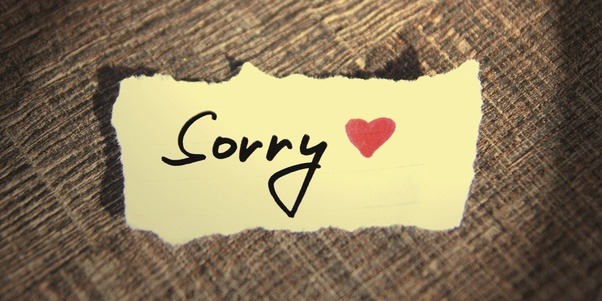No kidding. It doesn’t do what you think it does.
Let me be clear—when you make a mistake and hurt someone or inconvenience them—apologize. Mistakes happen, and it is important to tell the person you distressed that you understand your actions affect them. I’m all for apologies in that case. Taking responsibility for how our actions affect others is important.
Here is where sorry is not helpful—when you make a choice you know will not please someone else and you apologize, hoping they will make you feel better about your choice.
When you say sorry in that case you likely have an agenda.
You are either:
- Asking them to not be mad at you
- Asking them to forgive you instead of being angry
- Wanting to make sure they still like you
- Making a bid for them to make you feel better
These agendas may be unconscious. They are still agendas.
It is irritating to have someone inconvenience you, and then be asked to reassure them either by not reacting or by making them feel better.
What is the alternative? Take responsibility for your choices. You made a choice someone else didn’t like. Own your choice.
Here is a common example. Most of us apologize for being late.
Most of us (including me at times) say, “I’m sorry I’m late. Traffic was awful” or “I hit every red light” or, my favorite excuse in Seattle in the summer, “the bridge was up.” Really? Did lights suddenly appear on the route? Are we really surprised that traffic exists? Did I forget that people boat in the summer?
It would be more honest to say, “I didn’t leave on time.”
When we say that, we take ownership. We admit we chose to make our time more important than theirs. We don’t ask the other person to excuse us for our choice to not leave earlier.
I usually leave to go somewhere allowing the amount of time it takes when there is no traffic. Usually it works out, but I live in Seattle; we have awful traffic. I’m late sometimes. I do my best to own it. If people are mad I let them be angry. They get to have their reactions. If they get angry, you can bet I’m going to leave a cushion of time for our next meeting.
Along with taking responsibility for your choices, it is helpful to be honest about your reactions. That way the other person will know the consequences of their choices.
If someone apologizes to me, especially if they have done an action repeatedly, I say, “Don’t apologize, you made your choice,” or “No need to apologize.” If I am angry I will tell them—not to have them make me feel better, but to let them know how I really feel.
When people keep apologizing it just pisses me off. Really? You just inconvenienced me, and now you want me to not experience what I feel? (A good rule of thumb: It is not helpful to tell people not to feel what they feel.)
So I say, “I’m angry. I don’t need you to make me feel better. I’m just angry that I waited for you.” I don’t try to hide my irritation or anger, at least as much as possible. It is hard to have someone be uncomfortable with my feelings. It has taken a lot of practice, and sitting in discomfort, for me to be able to let people know when I am angry.
For some, not asking for forgiveness and letting people know how you really feel will be a radical practice. Some of you won’t like it and will feel it is not nice. For some of you, it will be a relief to be more honest. I suggest you try taking more responsibility and be more honest with your feelings, and notice what you experience.
The beauty is you get to choose what you do.
Take care,
Jane
